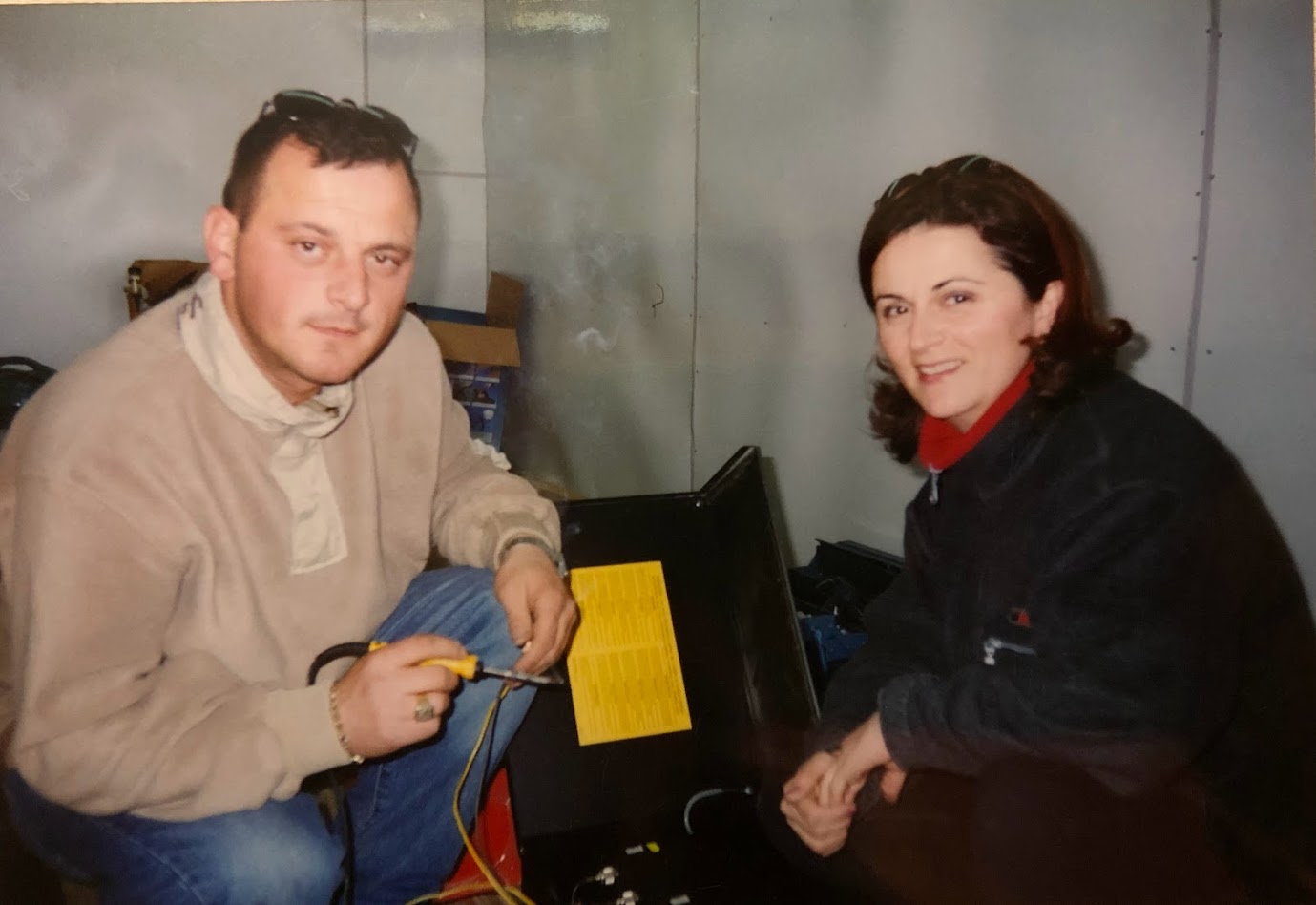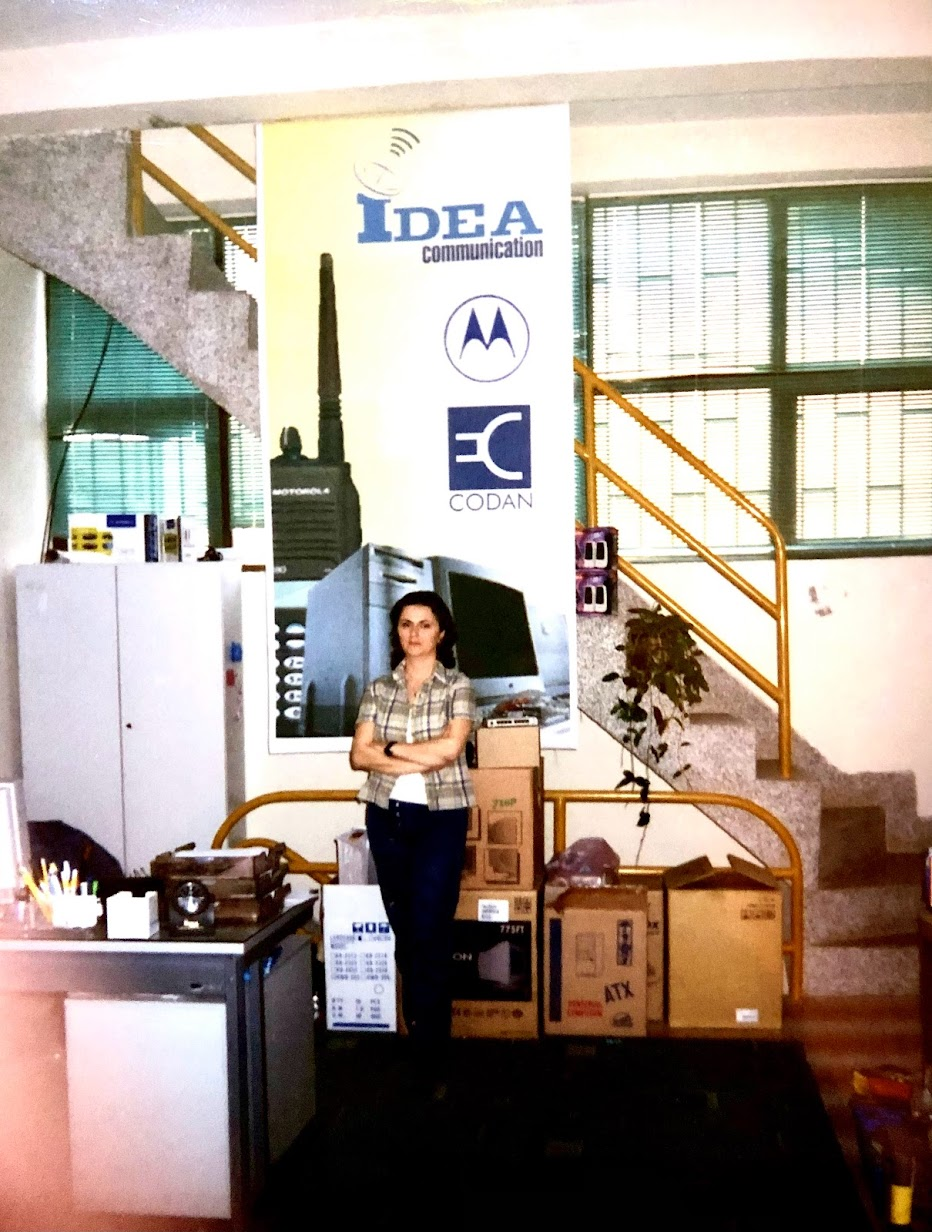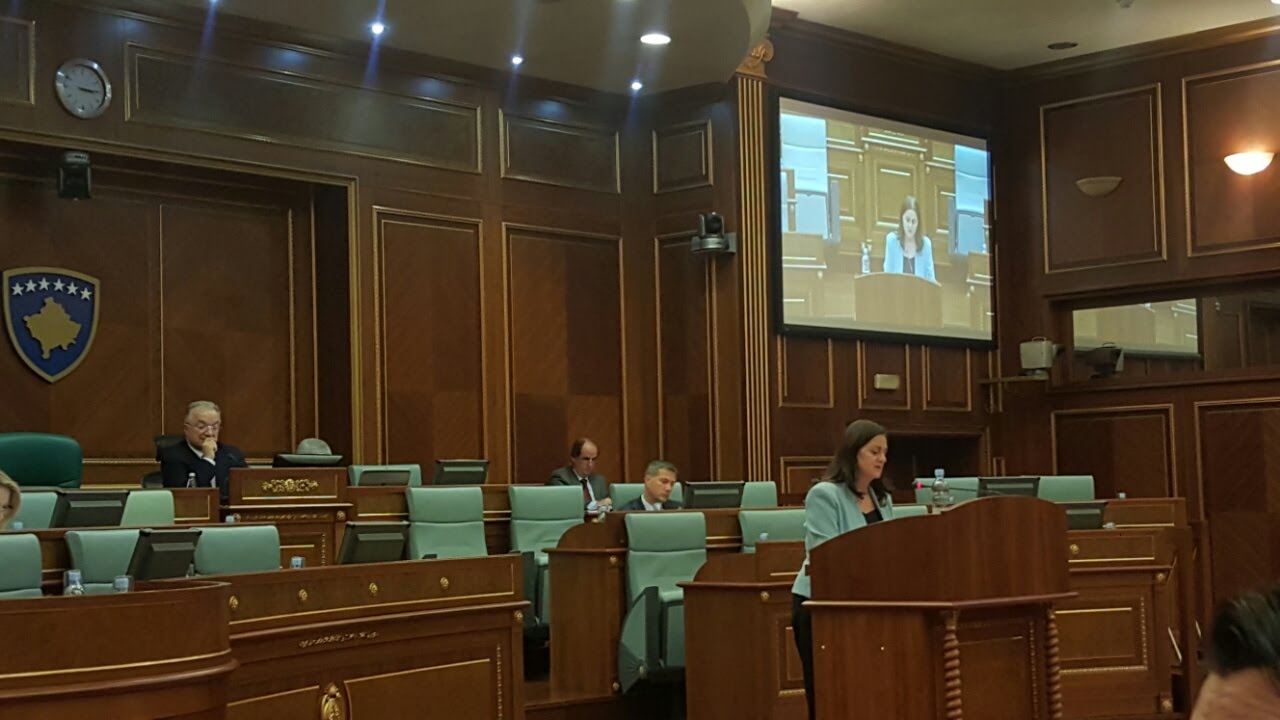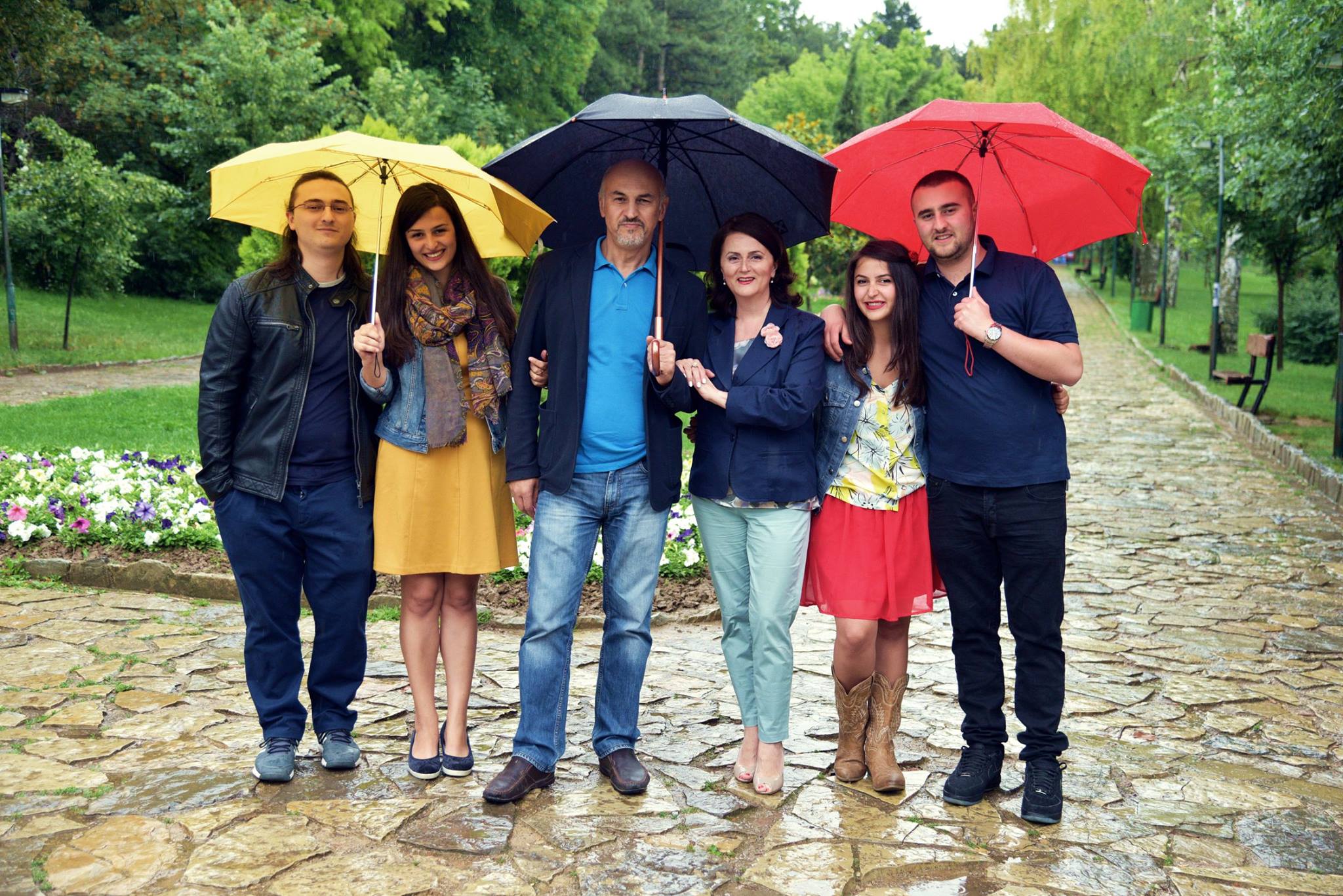An interdisciplinary approach to tackling the gender gap in STEM

Teuta Sahatqija is, by her definition, first and foremost an engineer. Her career has spanned from engineering to business to diplomacy. But through it all she has focuses empowering women to achieve their dreams alongside her. Most recently, Teuta has founded Women in Tech, to help women pursue careers in science, technology, engineering and mathematics (STEM) through digital empowerment. She joined STEM4ALL to discuss her journey, experiences, and continuous championing of gender equality and women’s empowerment.
Teuta, could you share with us how you first became interested in STEM, and what your upbringing was like?
Science and technology were always my passions. My father was a tech teacher and my uncle was an engineer. They are my earliest role models and teachers. My father would conduct experiments with me. My favorite toy as a child was a box of fifty electrical experiments. One I remember was a magnet I could use to move iron dust. My whole family encouraged my love of science. My grandmother was my first audience - a captive audience, if I’m being honest! I made her watch my scientific discoveries, and sometimes she became a bit more involved than planned! On one occasion, I was completely entranced by centripetal and centrifugal forces, and I wanted to show her how they worked by swinging a bucket of water on a rope. But what I didn’t count on was the force of the connection, and the bucket ended up on her lap! She was a very good sport about it.
It’s wonderful to have a supportive family. Did that ever change as you began to pursue science more seriously?
There were moments when my family took some time to understand my decisions. When I got to high school, I attended a very difficult math gymnasium. I was the only girl in the entire generation. In the beginning, they weren’t so supportive of my decision to attend the school, but eventually they came around. They saw that I was determined, and that I wasn’t going to change my mind just because things were difficult. This is something that I have adopted with my own children - I don’t hide challenges from them, but if they show me they are determined to do something even when it is difficult, I will support them fully. When it came to making the decision of whether to pursue physics or engineering, my family was great. They let me make the decision myself and supported me. But, when I began my first business venture, they were hesitant. I was raised to make my own decisions and take responsibility for my own successes and failures, and it was not an easy thing to discourage me. Still, my family was reluctant and afraid of the challenges I might face while starting a radio communication business from scratch. In the beginning, they tried to discourage me by saying it was a very demanding job in remote areas with difficult terrain including climbing on top of communication towers and high buildings, and working with difficult clients. And as a woman, I might have extra challenges in front of me. I listened to them, took everything into consideration, and told them that I will continue to pursue my dream and I would appreciate their support. Of course, I faced all the difficulties and challenges they mentioned, but the joy of a job done and the pleasure of solving difficult engineering tasks were some things I couldn't miss.

Your career has spanned many different sectors and paths. How did you end up in diplomacy?
I never thought I would be engaged in politics. From my childhood - I could even say from birth - I saw myself in science. But after the war in Kosovo*, there were unique opportunities, and building new structures and support systems was something that required help from everyone. At the time, I was in business. I saw the challenges facing business owners - especially the lack of legislation. It was a kind of an inner calling to help develop our government. I am proud to have served in many different political capacities. I see things that have happened because I was in the right place at the right time. Even though they look different, I think my background and experience in STEM gave me a mindset to see the issues facing us from a different angle. I can see the connections that need to be made, and the shortest way to make them. When I first entered politics, I was frustrated all the time by people who took thirty minutes to say nothing. As an engineer, I took two sentences! When you have a STEM background, you think more mathematically, or analytically, and you find the shortest, most efficient solution. You don’t just declare it’s a problem - you find an answer.

What are some of the challenges you’ve experienced in your career when it comes to gender and discrimination?
Unfortunately, I have encountered a fair share of discrimination based on my gender. I think all women in “men’s fields” have. Even from my early school days, this bias was clear. Some of my teachers didn’t think that girls belonged in my mathematics gymnasium, and of the six girls who started with me, after one year I was the only one left. I also faced discrimination and even lost clients during my career because I was a woman in the “wrong field”. One incident comes to mind. I was corresponding with a potential client, but only in writing. When we met for the first time, two men radio technicians attended the meeting with me. The client greeted the three of us and then asked which one of the two men was "Teuta". When I told him that I was Teuta, he just burst out: " What, women! What the hell are you doing in the radio communications field?" I asked, “Why does it matter?” To which he responded it was a man’s field. He turned around, and just walked away. I lost that job, but I never lost my faith and energy to continue to work in this "man's field." I have been successful in my job, proving that radio communication is "my field" and soon I was given the nickname "Motorola Lady."
How have you worked to center gender equality as a priority in your career?
From as early as 1999, I have tried to make gender equality and women’s empowerment a priority. I trained women in basic IT skills. It was my mission to make sure that women were equipped with the skills they would need in order to enter the workforce as Kosovo’s* institutions began to develop and operate. I began by training only women, as a way to make space for them in this new beginning, and to make sure they would have the certificates - and the confidence - needed to take advantage of the opportunities that were suddenly available to them. Even today, people come up to me to tell me that they learned from these programs, from bank tellers to policewomen. It makes me proud and happy to know that my work is appreciated and that I have truly made a difference. It was also great at the time that there was a big focus on computer literacy. There was so much energy put towards making Kosovo a digitally savvy place, and with an internet penetration rate of 97-98 percent, this also helped women to enter these fields. That’s not to say there isn’t still room for improvement. When I recently spoke at a university, it was wonderful to see that almost 50 percent of the students were girls. This is very encouraging. However, when we look at professors, managers, and other high level roles - the numbers drop off again. This is our current challenge: finding out why this happens and how to change it. As part of working towards this solution, I founded Women in Tech last year, which aims to help women pursue careers in STEM through digital women’s empowerment.
What do you think needs to happen to enable more women to follow - and rise in - STEM careers?
First of all, we need to include women and women’s perspectives and mindsets from early childhood all the way to the end of life. I think most girls begin to drop out of STEM paths when they hit the first obstacles of math, and their teachers aren’t prepared to show them that it can be done. Education needs to be improved, and we need early age scholarships for girls to study math, to reduce avoidance and aversion. Changing cultural norms is also a key need. We have to take a more holistic approach - not just when it comes to STEM, but for many things. For example, when I was the Chair of the Women’s Crossparty Caucus, we received a proposed list of ambassadors from Parliament - all men. We didn’t accept this list. In fact, we walked out of parliament and led a protest, with huge media coverage, and we were successful. But, because of cultural norms, some of the media started to mock us, calling us “silly girls” who don’t think they’d been given enough already. We come from a society that has thousands of years of gender discrimination, and being told that women only belong in certain places and can only do certain things. We need civil society, government, decision makers, media - everyone - to be onboard to overcome this barrier and fast-forward gender equality. There have been some actions by the government, such as a pledge of 2 million euros for scholarships specifically for girls in STEM. There are actions like help for STEM businesses and seed funds. But there is so much more that needs to be done. There are still not enough women in government and in decision making roles. Every decision made that does not consider both men and women, is a decision for just half the population. Having both genders on board is like working with both hands. You can’t be productive with one hand in your pocket. Including everyone is the smart thing to do - it’s better for education and for the economy. It’s using our full capacity. Especially when it comes to digital transformation - it’s no longer the future, this is the present. Big data and AI are everywhere, and this is not discussed enough. AI has become a critical element in decision making - for health, car safety, food and city planning. But we don’t talk enough about the fact that 80 percent of big data comes from men, and mainly white men. This has a huge negative impact on women. For example, women die more often in car accidents because test dummies are made in men’s sizes. Women with pacemakers die more often because the standard triggers for pacemakers are based on men. We need women to be involved in development stages in cyber security, in AI, in big data, and in blockchain. If women were included at every step, these disparities would not happen.

Do you have any advice for women and girls who want to enter STEM, or who have interest in following a cross-sectoral path, like you did?
First of all, being an engineer is cool. I’ve worn many hats, but whenever people ask me what I do I say I am an engineer. There will be difficulties, you will face discrimination and bias. But these are not reasons to give up. You must show them they are wrong, and shine. Ask for help, and look for role models, networks, and mentors who can and will open doors for you. Wherever you are, bring more women with you, and don’t be afraid of change. Build your own networks, and create a critical mass of women. Together, you can change mindsets, overcome discrimination, and help each other.
Teuta Sahatqija holds a Bachelor's degree and Masters of Science degree in Electronics and Telecommunications Engineering from the University of Pristina in Kosovo. She has worked in radio communications as both a technical expert and businesswoman. Since entering the political sphere, Teuta has served as Advisor to President Sejdiu and Chair of the European Integration Parliamentary Committee during the preparation for the SAA, as well as Deputy Minister of Foreign Affairs and Diaspora, and as Consul General of Kosovo in New York. You can learn more about her most recent endeavor as the founder of Women in Tech, at the WiT website.
